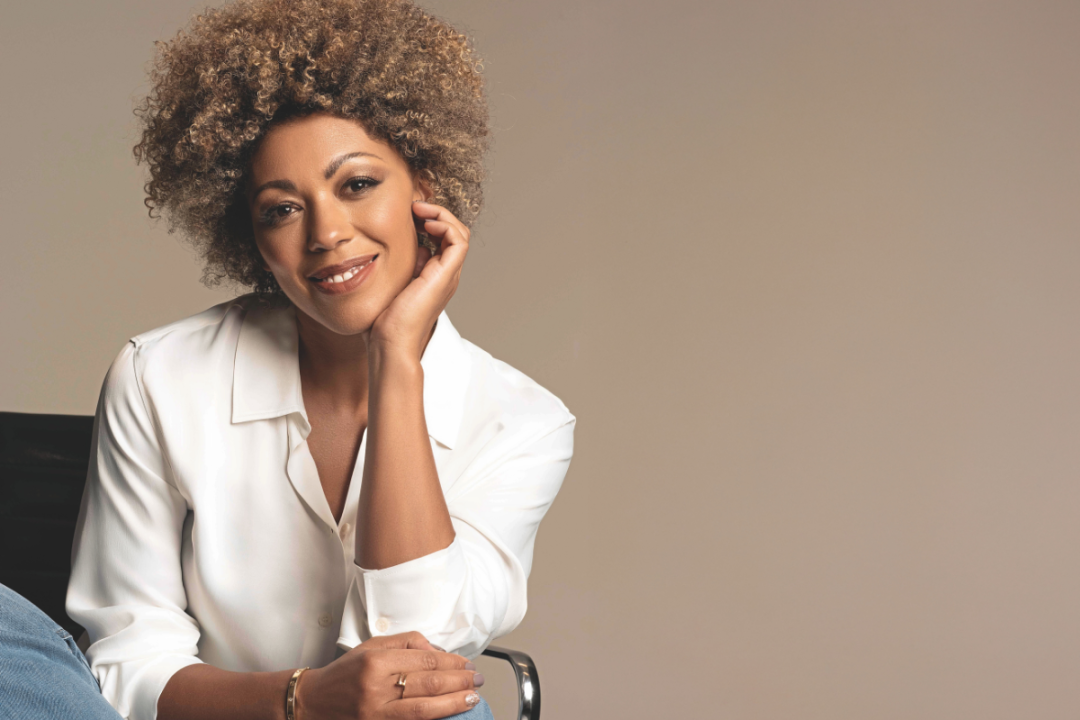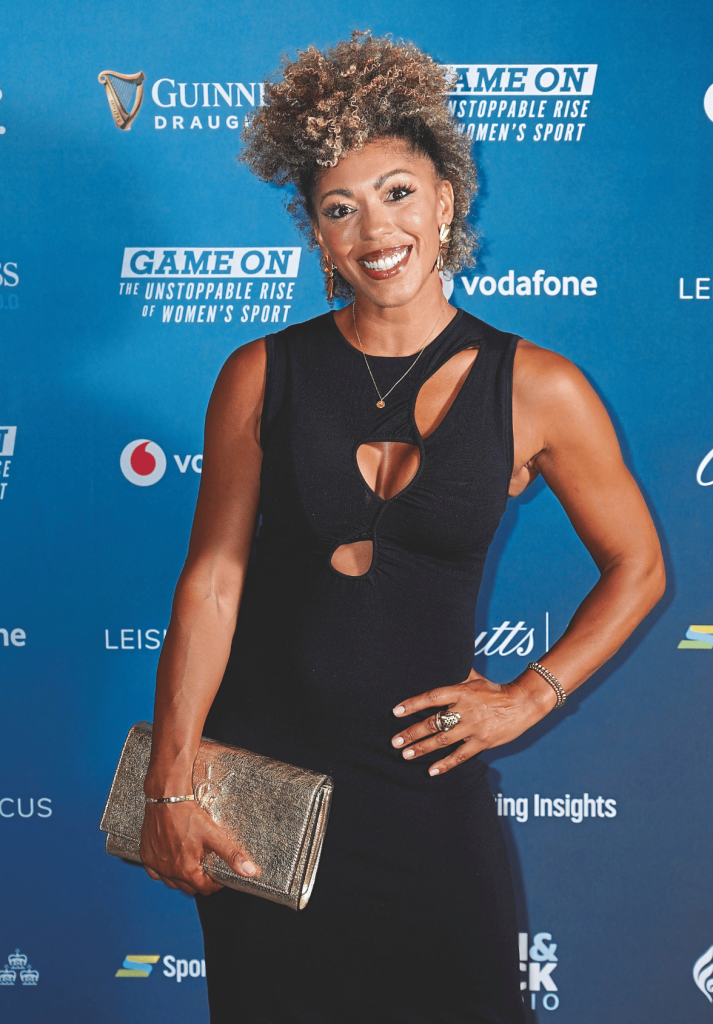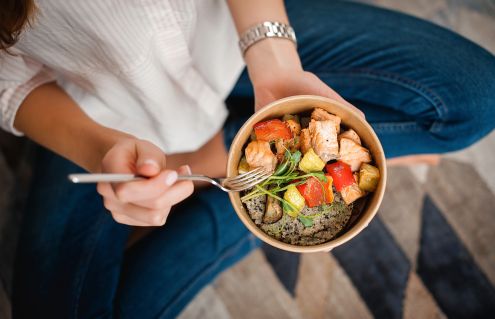Zoe Williams: ‘Approaching menopause has definitely given me motivation’

TV doctor Zoe Williams wants to help more women understand the changes menopause can bring, and make them feel empowered to face them with confidence
Images: PA; Ian West; Lucy North; supplied. Words: Lauren Taylor
She may not be experiencing any menopause symptoms yet, but at 45, Dr Zoe Williams is making big changes so she’s ready to tackle it head on.
‘As a woman in my mid-40s myself, the time to start preparing for menopause is before it happens,’ says ITV’s This Morning’s resident TV doctor. ‘I think inevitably, I’m in perimenopause. I’m not having symptoms, but I know with certainty that at my age, my oestrogen levels are lower than they used to be. It’s imminent.
‘Even as a doctor, I’ve gone through a stages of not having enough knowledge, being a bit oblivious, and being like “I’ll deal with that when I get to it”, all the way through to almost dreading it and having too much knowledge and [hearing] all the horror stories. Now I’m very much in a place of acceptance that this is going to happen and it’s not all doom and gloom.
‘I think approaching menopause has definitely given me motivation. I feel informed, I feel empowered. But I do also feel that women, many women, are more fearful than they need to be.
She has seen so many women go through her surgery (as a practising GP) that she is now keen to speak out about the challenges to support other women, especially around the subject of mental health.
‘So many women have come to me with mental-health symptoms which may or may not be as a result of reaching the menopause,’ she says. ‘Symptoms can affect their whole life and it can have a huge strain on their mental health in particular.
‘Relationships are often impacted and sometimes they experience problems at work too. It can be very distressing if you don’t understand what’s happening to you.
‘It’s so important that we provide more education and support, not only to the women who might be experiencing it first-hand, but also to their families, their employers, children, teachers and even healthcare professionals.
‘There is a serious need for the topic of menopause to be widely discussed issue and we’re seeing more and more people talking about it nowadays which is great. ‘As half of the population will go through the menopause, it’s likely to have an impact on most of us at some point.’
The way the menopause impacts us can vary, she explains.

‘Often we find that women who have never experienced low mood before start to feel low, and that can be scary and confusing. ‘Around 25% of menopausal women consider changing jobs or leaving work at this time.
‘We all need to be acknowledging that this is a huge waste and employers need to offer much more support for their menopausal workforce.’ Williams is also keen to take control of her own health, and encourages other women to help themselves going forward too.
‘From our 30s onwards, we should be starting to think about [it]. If we [prepare] our bodies the best we can, then that’s one of the best offences that we have against some of the negative consequences.’
‘I’ve already started to make some lifestyle changes, and actually, it’s given me some motivation to stick with certain lifestyle changes that I know are going to help me when I do reach menopause,’ she says.
Her personal focus now is ‘definitely on building strength and maintaining flexibility’, whereas before, ‘I used to really love to go spinning and get those endorphins hits, but now I’ve shifted because I know what’s better for me.’
Williams, an ambassador for menopause brand Issviva, still does cardio though. ‘I love walking up a hill and getting a bit sweaty, I do a dance class once a week.
‘Whatever stage of the menopause you’re at, exercise is undoubtedly beneficial, not only to your physical health, but your mental health too. If you haven’t exercised for a while, I recommend starting with at least ten minutes a day of brisk walking (ensure your heart rate increases and you become slightly out of breath) and then introduce some strength training.
‘If you can exercise outdoors, do so as this is proven to help improve your mood and help boost energy levels.’ A nutritious diet, that helps to curb blood sugar fluctuation, is understood to help manage common menopause symptoms, like hot flushes and weight gain, while also protecting your heart health, so Williams has also turned attention to her diet.
‘As we’re approaching menopause, it’s really important to make sure we’re getting enough calcium,’ she adds. ‘I try and eat fish more often, I usually have a salad during the week for lunch and chuck mixed seeds and mixed sprouts and a few nuts. It doesn’t cost a lot of money but all the stuff I chuck in there, there’s probably about 20 different plants.

‘I’ve shifted from trying to eat healthily and trying to minimise foods that are not so good for me to focusing on nutrient-dense foods that I really love. If you’re entering your 40s and you find that you do have a bit more expendable cash than you had before, consider spending that on nourishing your body with good quality food, before anything else.’
‘The number one killer of women is heart disease,’ notes Williams. ‘It’s really important that women understand the link between menopause and heart health as women.
‘Women tend to get heart attacks about 10 years later than men, and one of the reasons for that is that the oestrogen that we have in our bodies prior to menopause actually protects the heart. Once we lose that at menopause, our heart starts to become susceptible.’
For women who don’t take hormone replacement therapy (HRT), there will be an ‘uptick’ in the inflammatory state of the body: ‘Which we know is not good for our health, it increases heart disease and type 2 diabetes,’ Williams says.
‘We can think of oestrogen as an anti-inflammatory chemical. Oestrogen is in every cell of our body, it’s in every system of our body and whilst we have oestrogen circulating, it’s providing an anti-inflammatory effect. So therefore, once we lose that oestrogen, the inflammatory state of our body is likely to turn in the direction of a pro-inflammatory, especially if we have lives where we’re really under stress.
‘The major things that increase the inflammatory state of our body are chronic stress, poor diets, physical inactivity, too much alcohol and smoking.’ The fall in oestrogen levels can also impact your romantic relationship — both outside and inside the bedroom. ‘It’s normal to feel irritable and have less patience with family and friends,’ says Williams.
‘Women often report feeling invisible to society and sometimes they even feel a sense of loss. These are all quite normal feelings but don’t be afraid to tell people how you’re feeling. There’s nothing to be ashamed of.
‘Many women report extra strain on their relationships during the menopause and lack of sleep can exacerbate that,’ she says. ‘It’s also very common that women experience vaginal dryness [during menopause]… as well as losing laxity and sexual pleasure.’ (Issviva’s Joylux device is designed to help naturally regenerate some of the tissue in this area and improve muscle tone to combat the symptoms).
But the most important thing you can do is simply to open up and talk, she explains. ‘I find with my patients that when they understand what they’re going through and they feel well-informed and “heard” they tend to manage their menopause experience in a much more positive light.
‘Understanding you are not alone or going crazy is important and there are some brilliant support groups out there. Talking and sharing is beneficial to your whole menopause journey.’
The Issviva x Joylux Device costs £299 and can be purchased from issviva.co.uk









